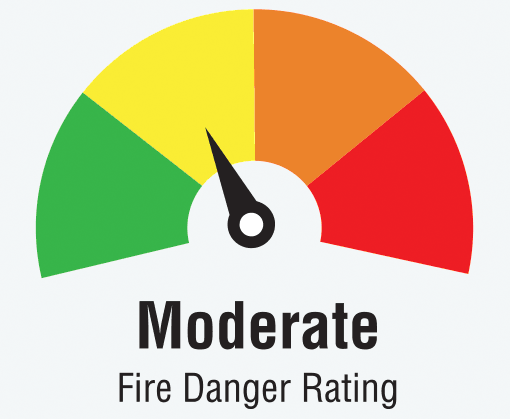
Whistler is Making BIG MOVES for our Climate. When we act together, small steps become BIG MOVES
Whistler’s Climate Action BIG MOVES Strategy identifies the six most impactful action areas we need to focus on as a community to reduce emissions and make Whistler a more climate resilient community. We all have a role to play! The RMOW, in partnership with Whistler’s environmental charity AWARE, has created Small Steps for BIG MOVES: 12 months of climate actions that each of us can take to support Whistler’s six BIG MOVES.
TAKE ACTION! This January, let’s:
Decarbonize our diets
Taking a close look at our food choices is a great way for us as individuals to decrease our personal carbon footprint, helping BIG MOVE #6: Close the loop and shift toward lower carbon consumption.
The United Nations’ Food and Agriculture Organization estimates that the meat industry generates nearly one fifth of the man-made greenhouse gas emissions accelerating climate change worldwide – more than the entire transportation sector. Aligning eating choices with what is best for planetary and human health is getting easier every day as we ask more questions about where the food on our plates comes from.
Across the Squamish-Lillooet Regional District partners are working together to strengthen regional food security. As we seek to produce the most food possible on a limited agricultural land base, increasing demand for foods that take less water and land to produce helps support farmers and keep Sea-to-Sky communities more resilient to global shifts in food supply chains.

Ready to take action? Let’s try one (or some) of these Small Steps for BIG MOVES:
1. JOIN THE MEATLESS MONDAYS MOVEMENT.
Passing on meat just one day a week dramatically decreases our personal carbon footprint! The Meatless Monday movement already has global momentum, which means we can benefit from plenty of shared resources, recipes and advice. And you can make them on any day of the week!
- Give it a try: Explore Meatless Mondays plant-based resources and recipes
2. EMBRACE WEEKDAY VEGETARIANISM.
So Meatless Monday meals were delicious and now you’re hungry for more?
- Get inspired: Why I’m a weekday vegetarian Ted Talk by Graham Hill
3. MAKE MEALS PLANT-BASED TO GET TASTING AND TALKING WITH FAMILY OR FRIENDS.
Next time you are cooking at home or hosting, challenge family and friends to try a new dish. Even better, share the cooking with a plant-based potluck.
Check out some tasty alternatives:
- Join the annual Veganuary movement to receive recipes and inspiration direct to your inbox for the month of January
- Check out the Hooked on Plants website by local Olympian Julia Murray for recommendations on plant-based recipes
4. EXPLORE PLANT-BASED MENU ITEMS AT YOUR FAVOURITE LOCAL RESTAURANTS.
Many restaurants in Whistler identify plant-based menu items and some even have separate menus to offer vegetarian / vegan options. If you don’t see options on a menu ask your server for their recommendations.
Explore local connections:
- Check out the Hooked on Plants website by local Olympian Julia Murray for recommendations on plant-based restaurant choices in Whistler
5. TEST OUT ANIMAL ALTERNATIVES: MYLKS, CHEESES, MEATS AND MORE.
There are an ever growing number of alternatives to animal products. From dairy-free mylk choices including, hemp, oat, cashew, almond, rice to meat substitutes, butter and cheese alternatives and more. Spend a month taste testing and see if you’d like to make some switches.
Keep in mind:
- Nut mylks like almond and cashew are lower impact than dairy but are still water intensive. So if your goal is treading lightly be sure to avoid or minimize these options.
- Not ready to ditch meat or dairy? Look for options to buy local and from producers who are taking steps to adopt sustainable farming practices.
What We Heard ~ Stories Shared
Thank you for sharing your stories!
Check out these small steps for BIG MOVES that some of our community members have taken:
- Alison has been a vegetarian for many years and has made a recent effort to take things even further by reducing her consumption of dairy products and replacing with oat milk.
- Christina has embraced Meatless Mondays with her family as a way to reduce their diet-based GHG impacts. They are loving the catalyst to explore new recipes while also making a positive difference!
We invite you to share your stories about your small steps for BIG MOVES every month. There’s a chance to win some great prizes if you submit a story! Have a look at our January theme: whistler.ca/TurnDownTheHeat.
The United Nations’ Food and Agriculture Organization estimates that the meat industry generates nearly 1/5 of the man-made greenhouse gas emissions accelerating climate change worldwide–that’s more than the entire transportation sector!
Taking this step as a family is a great way to teach kids about food choices that are both healthy for them and healthy for the planet. This might also segway into fun family projects like growing your own fruits and vegetables.
Some of our many dairy-free milk choices include, hemp, oat, cashew, almond, rice and more.
While the difference in greenhouse gas emissions for animal-based versus plant-based foods is well known, emissions per gram of protein for beef and lamb are about 250 times those of legumes; pork, chicken, dairy, and fish have much lower emissions.




